Book Online Now
More than just 20/20
At Eyecare Plus Altona, we understand that vision is much more than just seeing 20/20. Our examinations assess eye function as well as eye health. Visual function includes an assessment of our eyesight and any prescription that may be present (longsighted, shortsighted or astigmatism), as well as eye movements, eye alignment (using 2 eyes together) and focusing skills. Examination of these skills is crucial to understand how well our visual system is working, especially when visual demands are high.
A comprehensive vision examination for children considers the development of the child’s vision in relation to overall development, general health and lifestyle. Every part of development can affect how our how a child’s vision develops. This is also important for our adults who have visual efficiency problems.
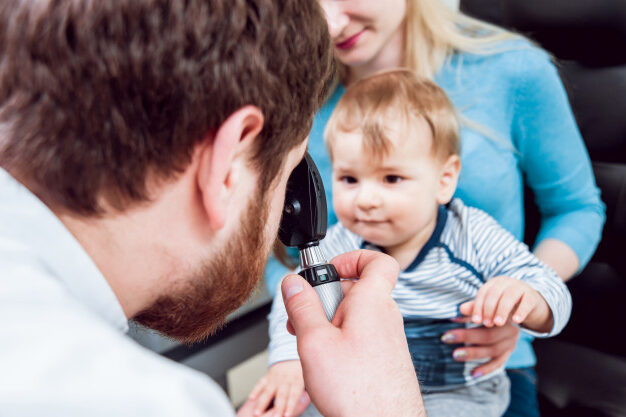
Parents often wonder how we can assess the vision of their young child. We are able to assess the vision of very young children, even babies. If you think your baby or child has a vision problem, it’s important not to delay having an eye examination due to thinking that they may be too young. Vision problems may impact on general development, so early intervention is important. There are many ways to objectively assess the vision and eye health of young children, who may still not be speaking.
Let your child know that their eyetest will be about playing some fun games to see how well their eyes are seeing. There are many ways to examine the eyes and vision of youngsters and make it a great experience for them. Our vision testing room is set up with all sorts of toys and age appropriate tests for even the youngest children.
Vision is used for almost 80% of learning. Ironically, vision problems can be hard to see! Many children won’t complain of vision problems. They can adapt very well to the conditions that they are used to as they don’t know how things look to anyone else. An eyetest before school is very important to assess general eyesight, and to ensure that a child has enough strength in their visual system to begin using their vision at a much higher demand. Without well developed eyesight, eye alignment and focus skills, energy is directed to the visual system, rather than to the task of learning. Regular vision examinations during school are important to ensure that visual skills stay strong as demands increase.
A comprehensive vision examination for children considers the development of the child’s vision in relation to overall development, general health and lifestyle. Every part of development can affect how our how a child’s vision develops. This is also important for our adults who have visual efficiency problems.
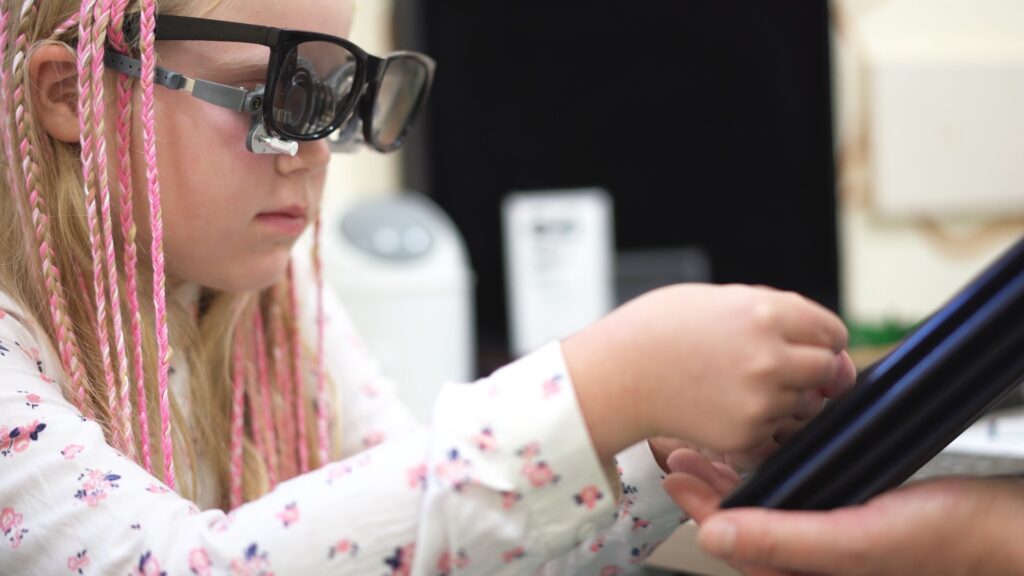
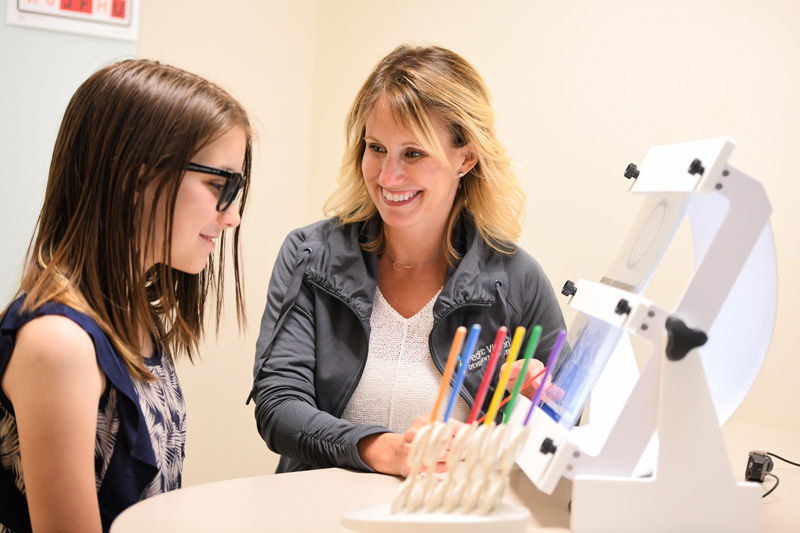
Early detection of children’s vision problems is essential to make sure your kids have the visual skills they need to do well in school, sports and other activities.
Vision is arguably the most important of the five senses. It plays a crucial role throughout childhood and beyond. In fact, experts say 80 percent of what children learn in school is presented visually. From infancy on, there are important milestones in your child’s vision development. For example, during the first several months of life, a baby can focus only on objects up close. Those objects will be seen in high contrast colors only, such as black, white and red.
But by 6 months of age, your child’s visual acuity should be much sharper, with more accurate colour vision and better eye movement and hand-eye coordination skills. To make sure your child’s eyes are functioning properly and working together as a team during the early formative years, schedule his or her first eye exam at 4 years of age, or earlier if any suspicions arise. Otherwise, a lifetime of poor vision in one or both eyes could occur.
Early eye exams also are important because children need the following basic skills related to good eyesight for learning:
Some parents are surprised to learn that preschool-age children do not need to know their letters in order to undergo certain eye tests, even when they are too young or too shy to verbalise.
A child who is unable to see print or view a blackboard can become easily frustrated, leading to poor academic performance. Some vision problems, such as lazy eye, are best treated if they are detected and corrected as early as possible while the child’s vision system is still developing.
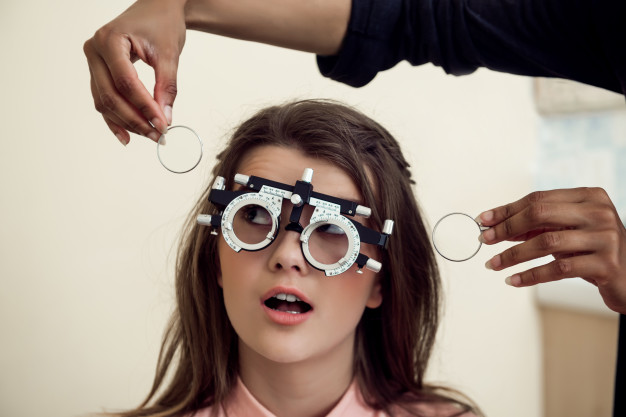
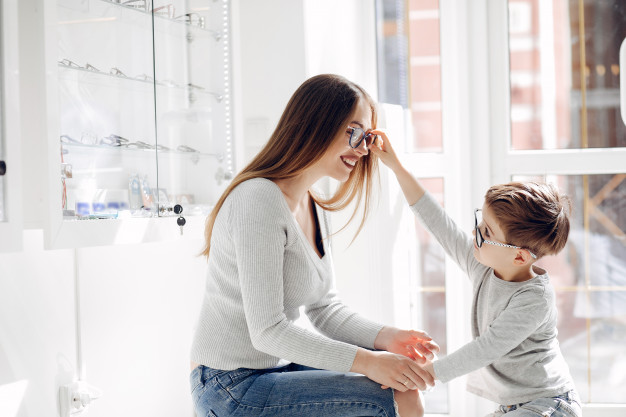
(lazy & turned eyes)
Strabismus (eye turn) and Amblyopia (lazy eye) are the most common disorders of binocular vision. When the brain has difficulty using the 2 eyes together well, strabismus or amblyopia can develop. In some cases this can be due to a problem with an eye muscle, but more often it is due to a neurological difficulty where the brain cannot fuse together the two images together from each eye. One eye usually becomes much weaker than the other, failing to achieve normal eyesight even with prescription glasses or contact lenses, as the brain finds it easier to just use one eye than two together.
Amblyopia begins during infancy and early childhood. In most cases, only one eye is affected. But in some cases, reduced visual acuity can occur in both eyes.
If lazy eye is detected early in life and promptly treated, the prognosis for better vision development is easier. If left untreated, lazy eye can cause severe visual disability in the affected eye, including legal blindness.